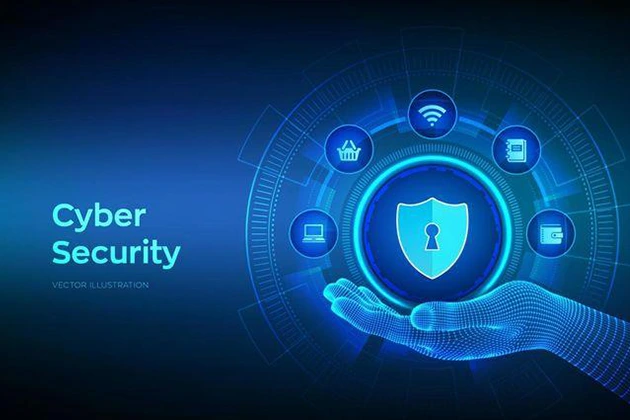Cybersecurity is always a point of contention, but when was the last time we stopped to consider our own vulnerabilities? With social media now accessible to anyone across the globe, online shopping, and working remotely, the chances of getting our personal information wronged are at an all-time high.
Many would believe this does not happen to them, only to be completely baffled when it does. Here are five common cybersecurity mistakes that could be avoided to help you stay safe in today’s digital world.
1. Using Weak or Reused Passwords
Passwords serve as the first gate of security for all online accounts. Even so, a great number of users still either fail to come up with a strong password or turn to reuse the same password on multiple platforms. This is a big exposure. Once one of the accounts is breached, the crooks see everything and have access to all your online information. Research has demonstrated that over 80% of data breaches tie back to botched password hygiene.
Why It Matters: Weak passwords can crack with brute-force attacks when hackers try out millions of combinations at a very high speed using algorithms. Reused passwords multiply the risk. If, for example, an individual has hacked into their email account and that person uses the same password for their online banking, the damage that could be caused would be horrific.
The solution: Make a unique password for each account. Combine upper and lower case letters, numbers, and special characters. Don’t use easily guessable information: birthdays, names, etc. For extra security, enable multi-factor authentication (MFA) wherever possible. MFA requires a password and a one-time code sent to your phone which makes it extremely difficult for hackers to get in.
Even using a password manager helps strengthen your cyber security and is also rather easy to manage.
2. Ignoring Software Updates
We’ve all done it, clicking “Remind me later” when the option to update your devices or software is prompted. But by putting off an update, your system becomes open to the attack of hackers. This is because software updates usually have patches for security holes that have been discovered since the last version.
Why It Matters: That outdated software most likely becomes an entry point for cybercriminals. The hackers are always sniffing about for installations of obsolete software, in order to penetrate such systems with already known vulnerabilities to launch a strike. The end product of the strike is a data breach and loss of money, in addition to ruining a reputation.
Solution: As soon as the new version is available, get on the software update. Automatic updates should be set up for both the operating system and applications to ensure continuous security. In businesses, investing in patch management tools or partnering with an IT managed support provider can ensure systems stay up to date and reduce the risk of security breaches.
3. Falling for Phishing Scams
Phishing attacks remain one of the most effective methods used by cybercriminals to steal sensitive information. It is also defined as messages in the form of fake emails or in any kind of deceptive document that will compel you to reveal personal details such as a password or credit card details.
Why It Matters: Phishing scams thrive because they exploit human psychology, fear, urgency, or curiosity, urging potential victims into manipulation. An automated email purporting to come from your bank may induce you to verify account details immediately to avoid suspension. Clicking on this link may direct you towards a fraudulent webpage designed to steal your information.
Solution: It is better to be cautious while opening emails or getting messages from unknown sources. Try to look for some signs like wrong grammar, wrong URLs, or unsolicited requests for sensitive information. Reduce phishing mails hitting your inbox through spam filters. Try to learn common phishing techniques and keep yourself updated on new scams.
An example of maximum security surfing is done over the internet with a VPN. This encryption makes it much more difficult for internet users to access their data through cybercriminals.
4. Oversharing on Social Media
Social media turned out to be a goldmine for cybercriminals in accessing a slew of personal information. From birthdays and addresses to plans for vacations, all the nitty-gritty details shared online can be put to the utmost use for planning and stealing an identity. And if you’re running a business with a huge social media presence, it is highly necessary to include safe digital marketing practices for cybersecurity.
Why It Matters: Often, hackers and scammers will use point sources to answer security questions, provoke phishing emails, and commit fraud. For example, if someone posts about an upcoming trip, a thief may realize that a particular home would be unoccupied for the time being.
Solution: Avoid sharing information online as much as possible. Use privacy settings that restrict who can see your posts and personal details. Do not share sensitive information like your full birthdate, home address, or phone number. When accepting friend requests, ensure you know the person and trust them. After all, better safe than sorry.
5. Using Unsecured Public Wi-Fi
Wi-Fi networks are a blessing but a bane. These are more convenient, but they also become a nest for cybercriminals. Hackers can monitor a user accessing an unsecured public Wi-Fi network, thus allowing them to get hold of the user’s private information.
Why It Matters: When a person connects to a public Wi-Fi network, all his passwords, e-mails, credit card details, and each and every online activity done by him can be accessed by someone on that particular network.
Solution: Do not log in to sensitive accounts or conduct financial transactions while on a public Wi-Fi. When you have to connect to public Wi-Fi, ensure you connect through a VPN that encrypts the data traveling on it– and, hence, protects your privacy. Alternatively, use your mobile’s data network, which tends to be more secure.
Conclusion
We may be assuming cyberattacks can’t happen to us, but it has become a reality in today’s world that identity thefts occur, and taking preventive measures, such as changing passwords more often than would seem necessary, caring not to set easy-to-think passwords from social media sites, and carefully using tools like VPNs, can minimize your risk considerably.
For more information, it is advisable to go through the Cybersecurity & Infrastructure Security Agency (CISA) for official guidance. Protecting your online presence brings you peace of mind against the most common mistakes and solutions available. In a world where even cyber threats are evolving, it is essential to be vigilant and proactive, these days. Prevention is always better than cure, and your efforts today can safeguard your digital future.










